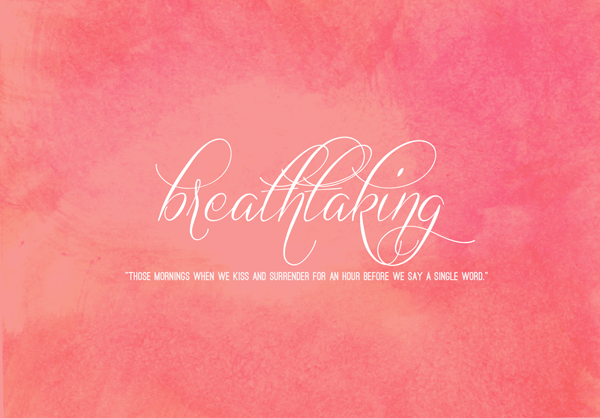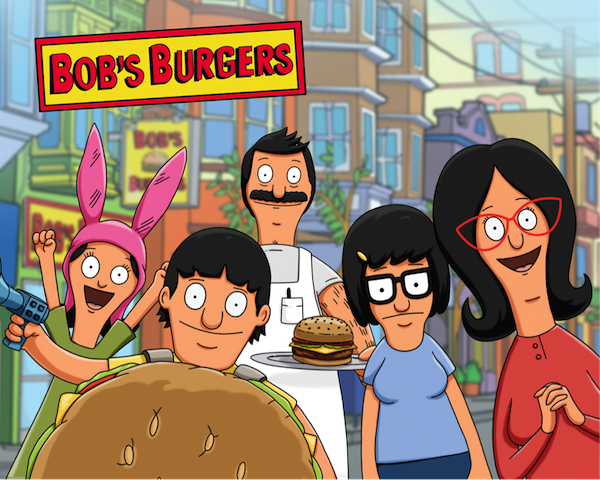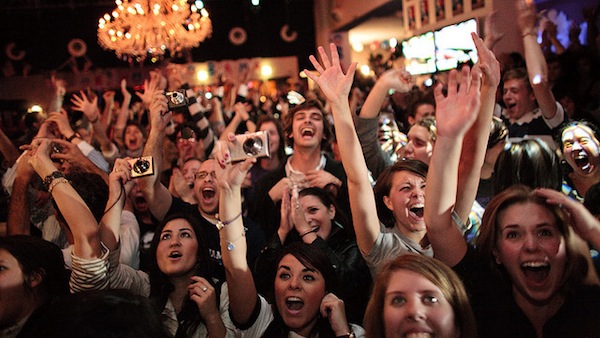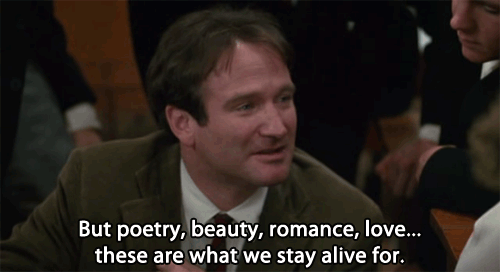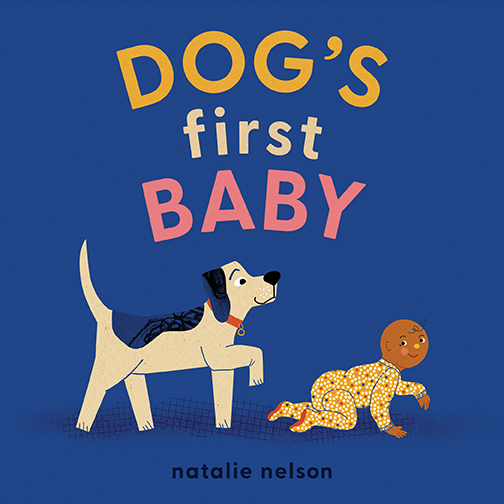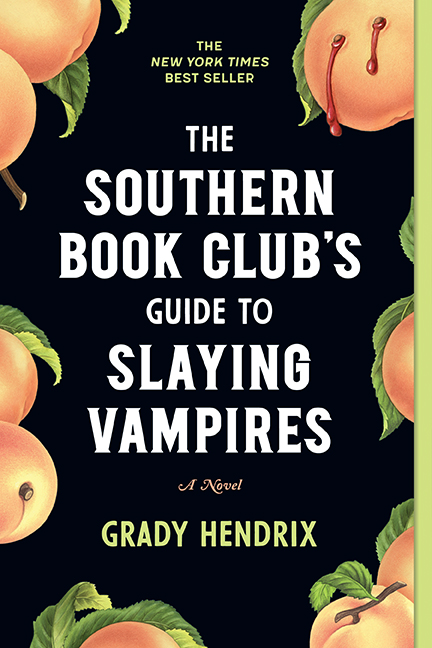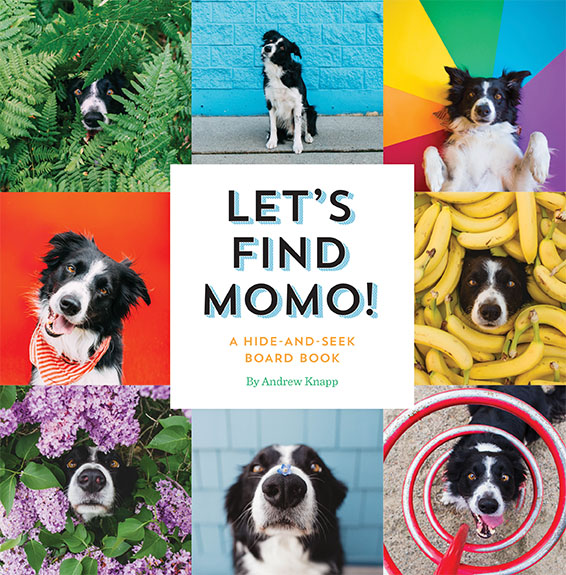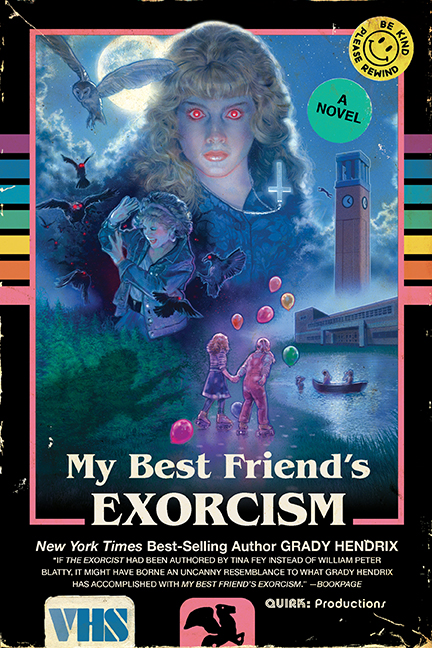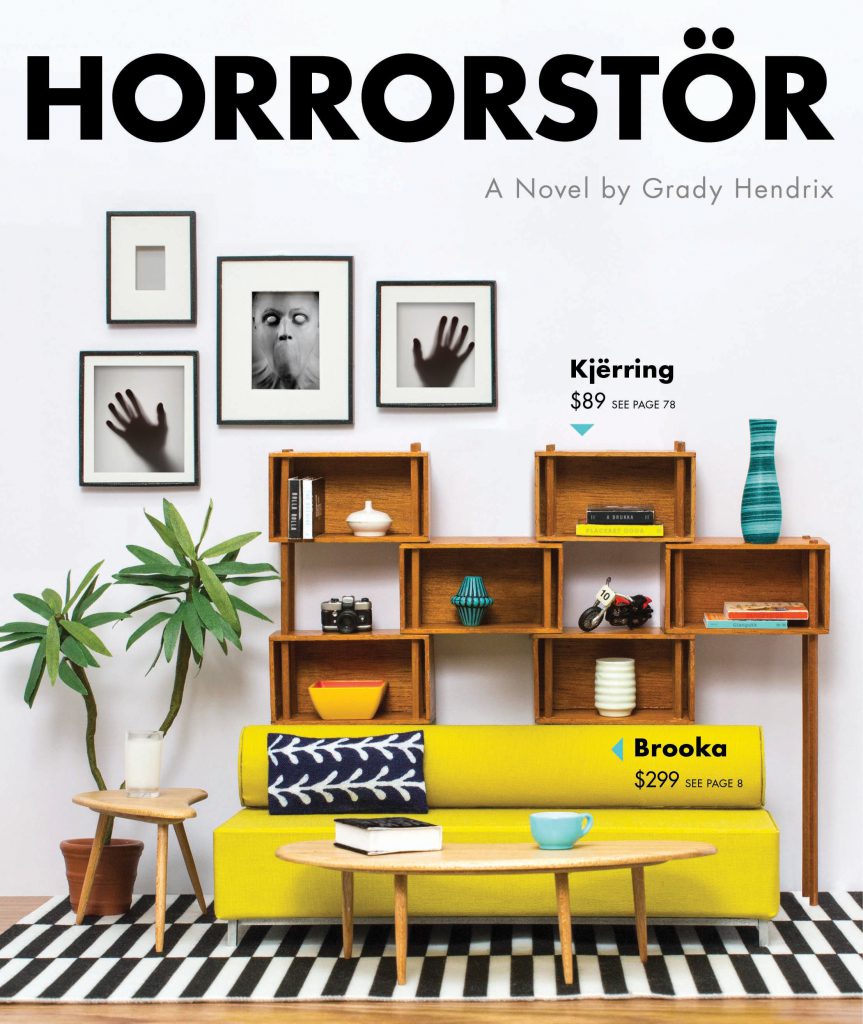Our Blog
Five Pieces of Poetry Science Fiction Fans Will Love
Posted by Alyssa Favreau
Ten Books That Break the Prose Mold
This beautiful Lover's Dictionary wallpaper is via Crazy Red Pen
We love straightforward novels, but sometimes we can't help but be drawn to books that are a prose story with added elements that give it a fun and intriguing narrative structure.
For example, stories that are told in both pictures and text, books that include letters and diary entries in addition to a narrative, or even just interesting typeface.
If it's different, then we want to check it out! Are you the same way? Then take a gander at these ten book selections that are so much more than prose.
House of Leaves by Mark Z. Danielewski: The ultimate story told in non-prose form is the epic horror novel House of Leaves, which leaves many readers in rapture, others frustrated and still others screaming in abject horror. It's a labyrinth of materials ranging from annotated textbook pages to letters to pages of almost nothing but a sentence of dialogue. Not to mention footnotes within footnotes. It's not for the faint of heart nor anything we would consider a beach read and has taken down more than one reader, who gave up on figuring out the deeper meaning. Like, why is the word house always printed in a specific shade of blue? As author Mark Z. Danielewski warns in the dedication, “This is not for you.”
S by JJ Abrams and Doug Dorst: Of course screenwriter and director JJ Abrams would create a book as in-depth as his television series Lost and Fringe. The simply named S is a story within a story about the fictional book Ship of Theseus, which is filled with handwritten notes between two high school students hoping to figure out the identity of the anonymous author. So much so that beneath the book's slip-cover the novel turns out to be an unreturned copy of Ship of Theseus from the Laguna Verde High School Library, library stamps and all. It's been called “part work of art, literary experiment, and love letter to the physical expression of books.”
Sacre Bleu: A Comedy d'Art by Christopher Moore: Christopher Moore is known for his parody and satire work, which come into play beautifully in his comedy about muses, the color blue and the strange suicide of painter Vincent van Gogh, who walked over a mile through a cornfield after shooting himself in the abdomen. To stay true to his theme, the entire book's typeface is printed in various shades of blue and Moore fills the books with copies of actual works of art, which he ties directly into the narrative. It helps that a majority of the characters are famous historical Impressionists, who just so happen to be trying to solve the mystery of Van Gogh's murder.
The Lover's Dictionary by David Levithan: Ever wanted to read a dictionary? Chances are no, but you will want to check out David Levithan's love story The Lover's Dictionary told in a series of dictionary entries from A all the way through Z. In the novel, the nameless narrator leads readers through a story of love, which was written completely organically from beginning to end by Levithan. He admitted in an interview that he wrote the story using completely arbitrary words from a book entitled Words You Need to Know within a two week time period. Apparently in high school he had written a similar story (part of the annual Valentine's Day tales he shares with friends) about scientific words of love.
Innocence by Jane Mendelsohn: This fantasy vampire novel made our list because of its wholly original writing style, which will put many in the mind of author Ellen Hopkins but without all the drugs and sad teenagers. A gothic horror story with plenty of Alice in Wonderland and Greek mythology references, Innocence is more poetry than prose but is still able to tell a wholly satisfying and lyrical story from beginning to end. Albeit one where it's hard to tell what is real and what is straight out of the imagination of our tortured narrator and her stream of conscious observations. You can read it in one sitting. And then you're gonna need to read it again.
To Be or Not to Be by Ryan North: The choose your own adventure novel is nothing new, but author Ryan North took it to a whole new level with his choose your own adventure version of Shakespeare's Hamlet. Created thanks to help from Kickstarter, To Be or Not to Be allows you to play the story as Hamlet, his tortured lady love Ophelia or King Hamlet, who is killed on the very first page forcing you to play as a ghost. Who wouldn't want to play as a ghost? As with most books of this type, you jump from page to page to get different outcomes to your story, one of which is a book within a book (similar to Hamlet's play within a play). North is currently working on a follow up entitled Romeo and/or Juliet.
The Invention of Hugo Cabret by Brian Selznik: Eventually turned into the 2011 Oscar-winning film Hugo, the huge tome The Invention of Hugo Cabret is a story told in both prose and through illustrations. So don't let the 500 plus page children's book scare you, the novel can be read in a single day and chances are you'll want to finish it that fast. The transition from written to visual storytelling is completely seamless and will not pull you out of the story of orphaned clock keeper Hugo. In fact, it seeks to strengthen the theme of film making, and the story of a boy who has stumbled from the walls of the Paris train station to a mystery of automatons and long lost filmmaker Georges Melies.
Night Film by Marisha Pessl: Night Film tells the story of investigative journalist Scott McGrath, who takes it upon himself to look into the mysterious death of reclusive cult film maker Stanislas Cordova's daughter. The novel relies on a narrative combined with newspaper articles, phone transcripts and screen shots to tell a story, and even gets some multimedia help from a Night Film Decoder app. When downloaded on your phone, the app can be used to scan pictures with a bird image hidden within the novel, which then unlocks exclusive media content. The publisher is so committed to the app that it works with both physical and e-copies of the book.
Invisible Monsters Remix by Chuck Palahniuk: Way back in 1999, Chuck Palahniuk published his third novel Invisible Monsters (although it was the second one he wrote after Fight Club). It was then re-released in hardcover in 2012 as Palahniuk originally imagined it. To make the non-linear story of our disfigured former model narrator and her pal Brandy Alexander even less linear, Palahniuk instructs readers to jump from chapter to chapter so you never know when the tale is going to end. If you pay close attention, aside from these instructions, there are chapters printed in reverse that you have to read in a mirror that the narrative never gets to, forcing you to contemplate your own reflection as you read. No worries though, Chuck explains all that in the introduction.
Tree of Codes by Jonathan Safran Foer: Jonathan Safran Foer's Tree of Codes may the strangest structured book in this list, and looks like a deranged child with scissors went through the novel before you had a chance to read it. Albeit a child with superior motor skills. So much so that the book itself is described as artwork in the form of a book, or a “sculptural object” according to the publisher. In fact, the novel itself was a Bruno Schulz story, cut apart and re-formed by Foer to create something wholly different. As he explained it, “I took my favorite book, Bruno Schulz’s Street of Crocodiles, and by removing words carved out a new story.”
–
Have we missed your favorite book that isn't straight beginning to end prose storytelling? Let us know in the comments!
Posted by Cassie Rose
What If We Cast Actors in Presidential Biopics Based on Last Name Alone?
Inspiration can come from anywhere. Sometimes it is grand and beautiful, with great implications about what it means to be human. Sometimes it comes from Twitter.
What if we assigned actors to presidential biopics based on last name alone?
— Blair Thornburgh (@ATallOrder) April 28, 2014
After seeing this tweet from Blair, one of my esteemed editors at Quirk, [Hello! —Ed.] I could not help but throw out name after name. Inspired, I put this post together, complete with shoddily photoshopped MS Painted movie stills. I don’t know about you, but I think at least one of these would be a blockbuster. [OBVIOUSLY. —Ed.] If not, I definitely have some sequels in mind.
Posted by Brian Morell
Seven of Bob’s Best Bookish Burgers
Posted by David Winnick
How to be Awesome at a Book Release Party
The next installment of the Hottest Book Series Ever is coming out, and you're lining up at your local bookstore to wait with a legion of super fans, reservation tickets in hand. Some folks are even in costumes or steampunk gear, and it's totally great. You're among your people.
But sometimes, we get too comfortable too easily, and we lose sight of the fact that although we're all brought together by this thing we all love, everyone loves things in their own, personal way. That said, here's a brief checklist outlining what you need to keep in mind so you can be an awesome book release party attendee:
Posted by Kristina Pino
6 Fictional Teachers We Honor this Teacher Appreciation Week
It's teacher appreciation week, and in celebration we’re saluting some of the best-loved teachers modern fiction has to offer. While we weren’t able to take their classes on transfiguration or using the Force, these mentors had a lot to teach us and their lessons hold up long after we’re done with their stories.
Mr. Keating – Dead Poets Society: Mr. John Keating brought poetry into the lives of teenage boys who were fixated on the problems of their own lives. More than rhyme and verse, he endeavored to teach them the importance of language and feeling, and dared them to reach into their reading and themselves for deeper meanings. He inspired them to take charge of their own lives, and in turn was given one the most memorable standing-on-desks salute in modern film.
Best Lesson: “Boys, you must strive to find your own voice. Because the longer you wait to begin, the less likely you are to find it at all.”
Ms. Frizzle – The Magic School Bus: Miss Frizzle taught important lessons about science, but even more about the quest for knowledge. Her lessons are almost always about sharing discoveries, and students’ research and observations make them respected contributors to each adventure (with the possible exception of Carlos’ bad jokes). The Frizz teaches enjoyment of learning above all else, so we’ll forgive her for not technically getting permission slips before taking juveniles into outer space or the Jurassic Age.
Best Lesson: “Take chances, make mistakes, get messy!”
Posted by Margaret Dunham

